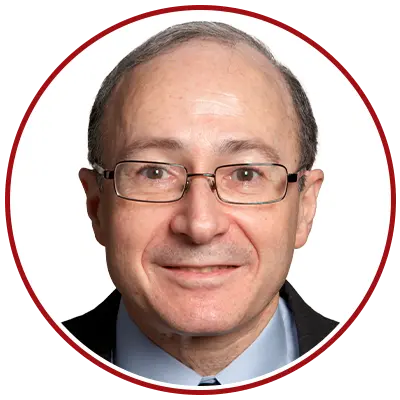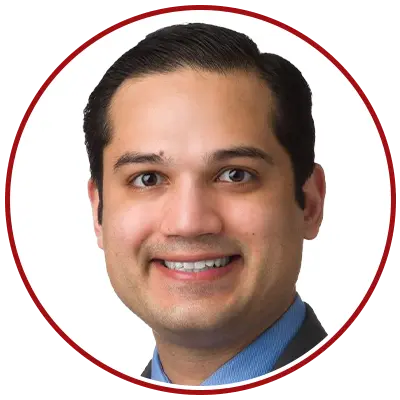- Case-Based Roundtable
- General Dermatology
- Eczema
- Chronic Hand Eczema
- Alopecia
- Aesthetics
- Vitiligo
- COVID-19
- Actinic Keratosis
- Precision Medicine and Biologics
- Rare Disease
- Wound Care
- Rosacea
- Psoriasis
- Psoriatic Arthritis
- Atopic Dermatitis
- Melasma
- NP and PA
- Skin Cancer
- Hidradenitis Suppurativa
- Drug Watch
- Pigmentary Disorders
- Acne
- Pediatric Dermatology
- Practice Management
- Prurigo Nodularis
- Buy-and-Bill
News
Article
Dermatology Times
Expert Reflections: Evolution of Dermatology, Medical Education, and Technology
Author(s):
In a milestone year for Dermatology Times, our Editorial Advisory Board reflects on advancements in their careers.
As Dermatology Times celebrates its 45th anniversary, we invite you to join us on a journey through the most impactful milestones in dermatology’s history. Over the decades, advancements in clinical practices, groundbreaking treatments, and innovative technologies have revolutionized the specialty, benefiting both practitioners and patients alike. Earlier this week, we shared a timeline of impactful events in dermatology. Throughout the rest of the m, we gain invaluable insights from our esteemed Editorial Advisory Board (EAB) on the influential people, pivotal drugs, and cutting-edge technologies that have shaped dermatology.
We recently asked our EAB, "How have dermatology, medical education, and technology changed since your career began?"

Omar Noor, MD: I have been in practice for 10 years, and it has been quite the learning curve of dermatology and medicine. I started [in] a time of lack of research dollars, awareness, and treatment options for all dermatologic conditions. Since then, we have [seen] multiple incredible safe and efficacious options for plaque psoriasis, atopic dermatitis, and, most importantly, metastatic malignant melanoma. Patients and us physicians are blessed to be able to provide the best care possible due to this research. Dermatology Times, thank you for continuing to increase awareness of our small but incredibly important field of dermatology.

Joel Schlessinger, MD: How can I count the ways? I have been in practice for 32 years, and I started with paper records that are now obsolete and no ability or desire to take photographs of patients other than for special educational cases.That has certainly changed!Additionally, the ability to compare patient pictures from prior visits to determine response to treatments has been a huge gamechanger.There are countless other things, including the proliferation of laser treatments and the advent of online [continuing medical education], but to me the ability to consistently see the results of our work by documenting photographic images has been the most rewarding change in my career.

Mark Lebwohl, MD: Our ability to take care of patientshas improved dramatically, thanks to breakthroughs in drug development. We now have biologic therapies [that]are safer and more effective than the oral medications and topical therapiesevery patient used when I started. And the oral therapies we have today are also more effective and safer, as are some of our newer topical therapies. In medical education, the annual AAD [American Academy of Dermatology]meeting has remained a consistent source of great information, and there has been an explosion of local, regional, and international meetings that are superb. Technological advances in lasers are now enabling us to better treat a wide range of skin lesions. On the negative side, electronic medical records have, in many cases, hurt patient care.

Zoe Diana Draelos, MD: The medications available for use in dermatology have improved efficacy and broader reach in terms of the conditions they address. This has been fabulous for therapeutics.

Tina Alster, MD: There are certainly more technologic and pharmacologic innovations and developments since I completed my training in 1990! At that time, there were no cosmetic/aesthetic sessions at the annual AAD meeting, nor any such training at a residency level. I was fortunate to have had the opportunity to be involved with the introduction of several of the laser and other energy-based systems to our specialty. Fortunately, there are now several opportunities for dermatology residents to receive training in their respective programs and during annual specialty meetings.

Renata Block, PA-C: Reflecting on my dermatology journey, I am filled with gratitude. The field has undergone transformative changes since I started as a derm PA [dermatology physician assistant] in 2003, with the emergence of aesthetics and biologics heralding a new era in dermatological medicine. This period of growth and evolution has not only deepened our understanding of diseases that once plagued our patients but also marked a significant shift in our practice, a shift that I am excited to have been a part of. I can’t wait to see what the future holds.

Raj Chovatiya, MD, PhD: These days, virtual is king. It’s not that people don’t like to leave their house or office, engage in social interaction, and attend meetings in person—we actually have more meetings than ever before. Rather, individuals are looking for flexibility with their medical education. The idea of education when you want it, where you want it, how you want it, and at your pace (preferably in sweatpants) is a critical part of our modern existence. We were making strides in this direction, but it wasn’t until the recent [COVID-19] pandemic that we were forced to innovate in real time. I think that this concept is here to stay, and I for one enjoy the innovation that comes with you to keep an audience captive when they are located all over the country and world—comfortable clothing and all.

Helen Torok, MD: The changes in the dermatology space in my last 47 years have been nothing but amazing.From technology with computers, smartwatches, electronic records, and AI, I cannot wait to see what the next 5 years will bring. Medical education is now at our fingertips. The latest medical information can be found with a click on our computers!

Mona Shahriari, MD: There are many more virtual options, whether it’s live virtual, taped virtual, podcasts, virtual grand rounds, roundtables,etc, that are available to watch/listen to in order to obtain key information from a medical education standpoint. Moreover, ChatGPT has been quite helpful in reducing the time and effort required to complete repetitive and mundane tasks that do not need a dermatologist’s level of expertise to complete.

Roy Geronemus, MD: The field of dermatology has changed dramatically since my residency. The advancements in medical therapy, surgical techniques and the introduction of technology for medical and cosmetic purposes has raised the profile of the specialty. Dermatology was once considered a marginal specialty and has been elevated in the medical hierarchy to a meaningful, valuable and desirable career choice. The introduction of post residency fellowships in various medical and surgical fields has also added tremendous value to dermatology with an increased number of highly qualified specialists. Social media has increased awareness of dermatology when used appropriately, however, unprofessional posting by some of our members threaten the professional gains that so many of us have worked so hard to achieve.







